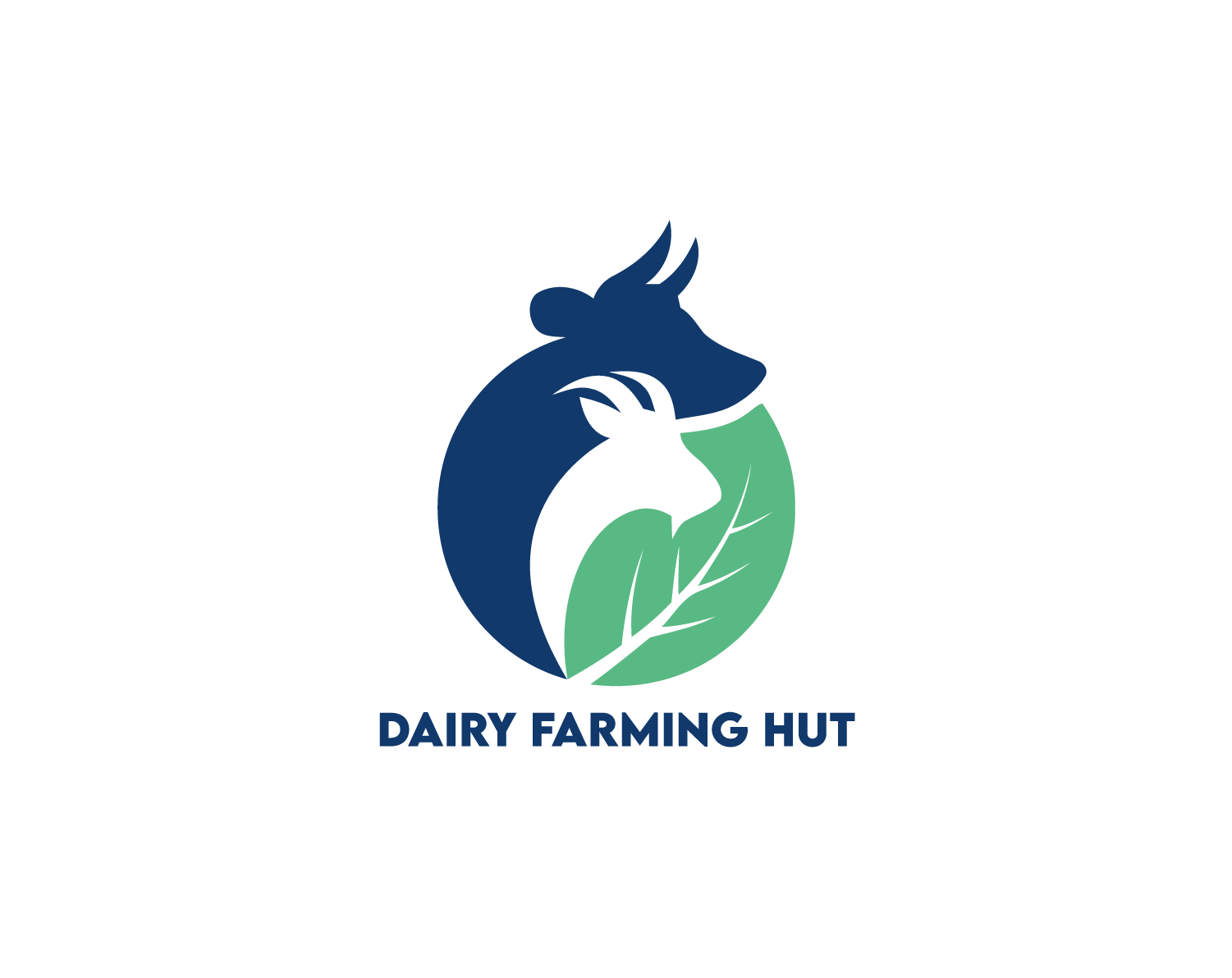Dairy farming is the process of farming animals, not for their meat but their milk. Animals are kept in enclosures where they are fed and kept safe from the various harmful elements. When they are ready to produce milk, farmers extract the milk safely and comfortably.
With all the talk of plant-based milk being a better alternative, it is hard to know which product is best and which opinion to believe. Could it be that the marketing teams of plant-based milk companies would like to criticize their competitors?
There are some common misconceptions about the dairy industry that are thought of as almost common knowledge. However, a lot of these misconceptions could not be further from the truth.
Let’s look at and debunk some of the most common misconceptions about the dairy industry.
1. Only Cows Can Be Dairy Farmed
Although cows make up the majority of dairy farmed animals in the Western world, many other types of animals can be farmed for their milk. As well as cows, buffalo, goats, sheep, and even camels are farmed for their milk.
Milk produced by different animals will taste different and can even have a different nutritional value; for example, goat’s milk has less lactose than cow’s milk and can be more tolerable for people who are sensitive to lactose.
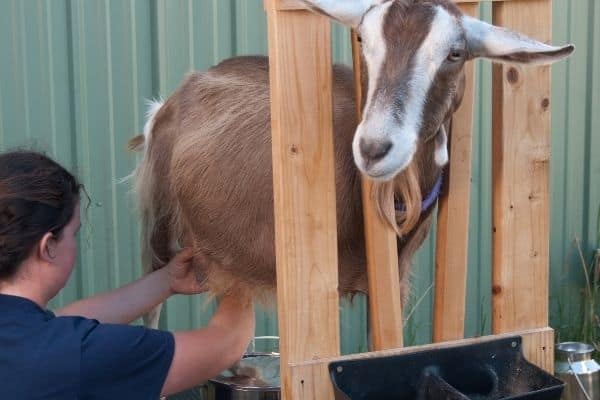
Likewise, camel milk is higher in vitamins than cow’s milk and contains less saturated fat. Camel’s milk is hard to come by in the United States, but it can be a healthy option. Perhaps there is a gap in the market waiting to be filled.
Check out this video showing how the camel is milked.
2. Artificially Inseminating Dairy Cows Is Cruel
A common misconception of Dairy farming is that the process of artificial insemination is cruel. Campaigners will say that cows are forced into small enclosures and maltreated.
You will see these words thrown around a lot if you look at documentaries claiming to expose the dairy industry.
However, cows are artificially inseminated in a pain-free and humane way. Like an injection, the cow may feel a short pain, but it is over before they know it. A cow may be inseminated once every year or so, as it takes 9 months for pregnancy. A short pain once a year is not an act of cruelty.
3. The Dairy Industry Hurts Cows with Milking Equipment
Likewise, the milking process is not painful for the cows. What is painful, however, is a bulging udder that needs milking. Dairy cows have been bred to produce much milk, far more than is needed for their offspring. To leave them bursting with milk would be crueler than milking them.
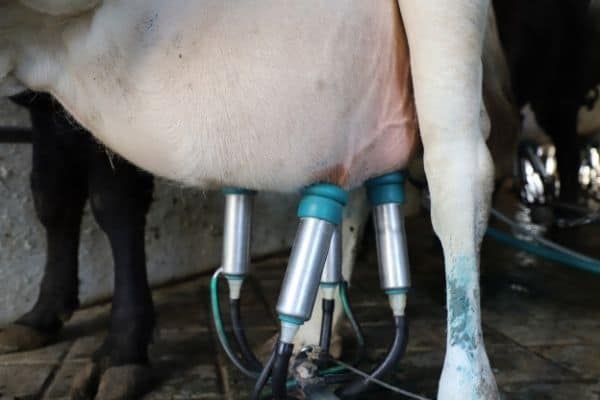
The machines that pump the milk out of the cow’s udders are soft and suck in a way similar to hand milking. Cow’s do not feel pain from this process, and once they are acclimatized to the process, they do not mind it at all.
4. Male Calves Are Immediately Taken From Their Mothers
This idea is a common one amongst activists and documentary makers. In fact, a common practice is to have the male calf live with its mother until it is weaned off milk. The male cow is then sent to be farmed for meat or leather.
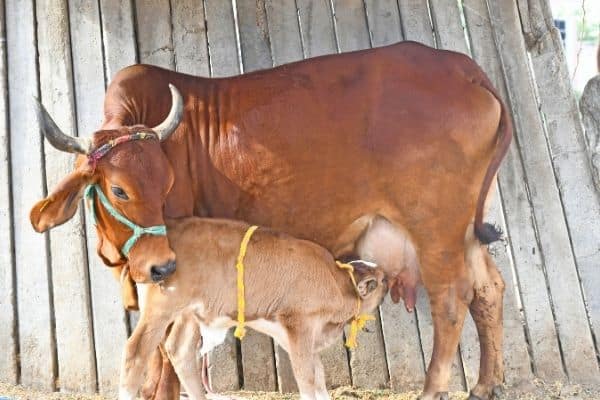
This practice may have been more common in the past, where male calves were separated from the mother and used for veal. However, with advances in technology and science, the inseminated semen can be sexed, meaning only females calves will be born.
5. Dairy Cows Are Full Of Antibiotics
Although cows are given some antibiotics when entirely necessary, they are not full of them on a regular basis. Activists will claim that cows are given more antibiotics than they need, which will make the drinker of milk ingest those antibiotics.
However, as of 2017, the majority of antibiotics are prohibited unless entirely medically necessary. Farmers will need a veterinarian to assess the cows before a prescription can be given for the antibiotics.
Similar to how you would receive antibiotics from a doctor who is sure you have a bacterial infection, the cows will only get antibiotic treatment when they need it.
Would you rather drink milk from an infected cow or one that has had that infection cured?
6. The Dairy Cows Are Full Of Hormones
Hormones are only used in meat production and not in the dairy industry. Hormones used in cows increase the amount of muscle mass that can then be farmed for meat. Dairy cows, on the other hand, are farmed more naturally.
Cows naturally produce a hormone known as Somatotropin, a Growth Hormone that is used in regulating metabolic processes. rBST is a synthetic form of the hormone that is sometimes given to cows to increase milk production.
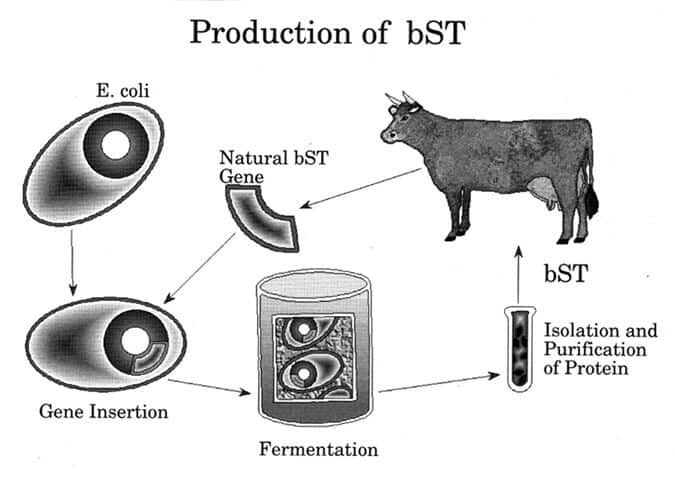
Source: wikia.org
The Food and Drug Administration in the US has found no significant difference between milk produced naturally or with rBST.
Despite this, the use of this hormone has been banned in many countries around the world and is even falling out of favour in the United States.
7. Dairy Cows Would Prefer To Be Outside
Of course, there is no way to ask a cow whether it is happy or upset. However, a cow's mood can be indicated by certain stress responses and through analysis of blood. Cows who are used to being inside show no signs of stress about being housed indoors.
It is observed that even when dairy cows are allowed out onto grassy areas, they want to get back inside once the weather turns windy or cold. There is a trade-off between giving a cow a comfortable living situation and having it in the wild.
Related: How Big Should a Cow Stall Be?
8. Dairy Farms Are Bad For The Environment
Because dairy farms are typically family-run enterprises, the farms' environmental impact is closely monitored. Air quality, land quality, and byproducts are accounted for. Although cows produce a lot of methane gas, many farms are harvesting this methane to make electricity.
As technology and science advances, the dairy industry is becoming more carbon neutral. The electricity made in 'methane digesters' can fuel the milking machines and any other electrical needs. Likewise, animal waste can be turned into fertilizer to be sold and/or used.
At the end of the day, dairy farming requires a healthy environment to produce a healthy product. As more and more effort is being put into maintaining a healthy environment, the dairy industry follows suit.
9. Larger Dairy Farms Care Less About Animal Well-being
In many activist documentaries, they focus on large dairy farms. The scale of the venture is often associated with an increase in cruelty to the animals. However, dairy cows are treated well to produce the most milk in a healthy and humane way.
Although there will undoubtedly be more cows on a larger dairy farm, their health and comfort is the main concern. Large farms may seem crueler since so many cows live and are milked in them, but the fact of the matter is that most milk produced in the US is from small to medium-sized farms.
Family-run farms are run in a way that sees farmers involved in every process. Whether it is helping a cow give birth, ensuring a cow is recovering well from an illness, or testing the milk for safety, farmers care about animal well-being.
Without having a happy and healthy population of cows, a dairy farmer will have no milk to sell. Ensuring the well-being of the cows is the most important part of dairy farming.
10. The Dairy Industry Uses More Food Than It Produces
It is true that cows need a lot of food in order to produce milk and meat.
Let's say a cow is fed grass in the winter and a preserved maize food in the summer. Some of the food will be turned into milk, and some will be excreted. However, with more environmental forms of farming, excretions can be reintroduced into the process.
Methane gas can be used to generate electricity to make the farm self-sufficient, and the poop can be turned into fertilizer for farmland. Likewise, when dairy cows die, their meat is often used in dog food or other animal feeds.
Waste is not beneficial for the dairy industry. All food that goes into it is used to create food or use products in a different form.
The Takeaway
There are many misconceptions about the dairy industry, and almost all can be debunked. As companies see profits in the plant-based market, lobbyist organizations strive to make documentaries and propaganda around dairy production.
Cows are not mistreated and are cared for within the industry. The product is free from harmful particles and will not negatively affect any consumer.
The dairy industry is a long-standing tradition that makes up a large part of the economy. Many jobs and livelihoods are within the dairy industry. Milk and products such as cheese, yogurt, and other dairy by-products rely on the dairy industry to be in place and exist.
